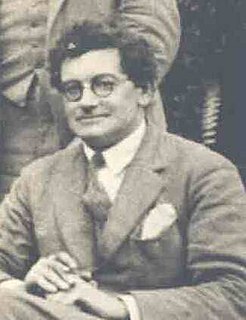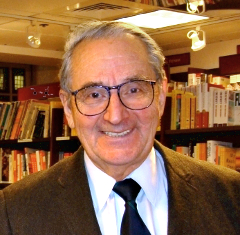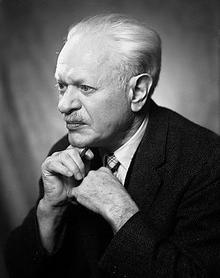A Quote by Carl Friedrich Gauss
Complete knowledge of the nature of an analytic function must also include insight into its behavior for imaginary values of the arguments. Often the latter is indispensable even for a proper appreciation of the behavior of the function for real arguments. It is therefore essential that the original determination of the function concept be broadened to a domain of magnitudes which includes both the real and the imaginary quantities, on an equal footing, under the single designation complex numbers.
Related Quotes
It is certain that the real function of art is to increase our self-consciousness; to make us more aware of what we are, and therefore of what the universe in which we live really is. And since mathematics, in its own way, also performs this function, it is not only aesthetically charming but profoundly significant. It is an art, and a great art.
One might think this means that imaginary numbers are just a mathematical game having nothing to do with the real world. From the viewpoint of positivist philosophy, however, one cannot determine what is real. All one can do is find which mathematical models describe the universe we live in. It turns out that a mathematical model involving imaginary time predicts not only effects we have already observed but also effects we have not been able to measure yet nevertheless believe in for other reasons. So what is real and what is imaginary? Is the distinction just in our minds?
It is fortunate that molecular synthesis also serves the utilitarian function of producing quantities of rare or novel substances which satisfy human needs, especially with regard to health, and the scientific function of stimulating research and education throughout the whole discipline of chemistry.
Good design is not about form following function. It is function with cultural content. By adding "cultural content" to the concept of "form follows function," objects cease to be finite or predictable. Maybe the right way to interpret the dictum is to first acknowledge that the function needs to be clearly understood before the form is considered.
One can say that the author is an ideological product, since we represent him as the opposite of his historically real function. (When a historically given function is represented in a figure that inverts it, one has an ideological production.) The author is therefore the ideological figure by which one marks the manner in which we fear the proliferation of meaning.
In the 1920s the young English physicist Paul Dirac began trying to understand and describe the space-time evolution of the electron, the first elementary particle discovered by J.J. Thomson in 1897. Dirac was puzzled by an unprecedented property of space-time, discovered by Lorentz in his studies of electromagnetic forces, whereby if space was real, time had to be imaginary, and vice versa. In other words, space and time had to be a ‘complex’ mixture of two quantities, one real and the other imaginary.








































